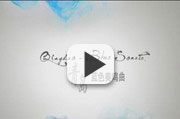Epic poem a milestone in Chinese literature
By Mei Jia ( China Daily )
Updated: 2013-05-28
|
|||||||||
The longest epic poem in contemporary Chinese language was released in May.
The Chinese Epic, written by Hua Wenfeng and published by Writers Publishing House, is a three-volume entity of poems totaling 40,716 lines. The ambitious literary creation equals Dante's The Divine Comedy and Homer's The Iliad and The Odyssey in number of lines, says Hua.
Hua, who is also a civil servant at Qingdao municipal government, Shandong province, says he spent six years writing the work.
"It's hard. But I'm driven by a strong and deep love toward my country and its rich culture," Hua says.
The three volumes mainly feature the progress of Chinese civilization from thousands of years ago to today. The first volume contains three parts, describing Chinese civilization in historical and geographic terms. By using six-line stanzas, Hua narrates the past and present of the country, and introduces its remarkable landscapes and 56 ethnic groups.
The second volume features 400 masters in different areas, which critics such as Zeng Fanhua, vice-director of China Poetry Association, say is appealing to foreign readers if translated, because the volume is "people-oriented stories in the form of poetry".
The third volume reflects Hua's literary influence from Dante. The volume is a symbolic quest from reality into an imaginary land seeking the ultimate answer of life.
The epic has been partly published in literary journals and newspapers since 2008, receiving positive feedback from readers.
Hua's epic is rare to the Chinese literary scene.
He Jianming, vice-chairman of Chinese Writers Association, believes Hua's poem makes up for the lack of lengthy poetic creations in contemporary Chinese literature.
Veteran critic Bai Ye compares Hua's work to novelist Zhang Wei's 10-volume magnum opus You Are on the Highland. The novel was released in 2010 and took Zhang two decades to finish.
Bai calls the two works two peaks. He knows both of the writers have put unimaginable effort into the work.
"Hua's work is actually an encyclopedic history in poetry," Bai says.
"Before Hua, Chinese poems tended to depict personal emotion and life's fragments. Hua takes a different approach and is broadcasting cultural and historical heritage through poetic languages," Bai says.
Critic Tan Xudong notices Hua's personal touch within the grand framework.
"Hua tells the stories with multiple perspectives including the one from his personal history," Tan says. "The poems also reflect his personal reading of history."
Bai agrees and says the personal touch makes Hua's long poems vivid and humane.
meijia@chinadaily.com.cn




